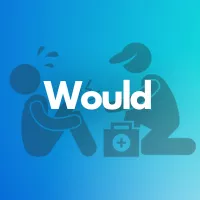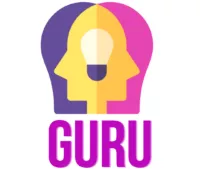Key Difference: Here, we come up with the proper explanations and examples to make you understand the difference between Could and Would in the English language. The term Could refers to the possibility or polite requests. And could is the past form of the word Can. Usually, Would is used to express the intention, or it indicates the consequence of an imagined situation. Let’s see the contradictions between these terms.
Could: How could you find it?
Would: It would be cool.
 |  |
Could:

Used to make suggestions or requests.
The word could is an auxiliary verb. It is the past form of the word can. We usually use the word “could” while making suggestions or polite requests. It is the more polite way of asking someone to do a favor for you. Let’s see an example to make it clear. Could you get me some water?. From this question, we might understand that someone asks politely to bring some water for him or her. We come up with another example for your better understanding. I could sing well even when I was a kid. In this statement, we understand that he or she sings well since childhood.
How Do We Spell the Word Could?
Phonetics pronunciation of the word Could is kəd,kʊd. And this word sounds like the following audio.
Enunciation:
Syllables are phonological building blocks of words. It divides the words into parts that can help you read words more accurately. Let’s see how to split the word affect using syllables. Learning syllables can also help you to spell words correctly.
- The word “Could” has only one syllable.
- It cannot be divided.
Using “Could” in sentences:
- I wish I could speak well in Spanish.
- Could I use your pen?
- If I had money, I could buy that for you.
- No one could solve this problem.
- Could you tell me the way to go out from here?
Would:

Express an Intention.
The word “would” is the past form of the word will. It is generally used to express the intention. In other words, it describes the past belief about the future. Let us see an example to make it clear. Where would they go? From this question, we might understand that Someone asks where will they go. We come up with another example sentence. I would not do that If I heard about this news. From this sentence, we might understand that Someone says that she or he didn’t do that if they heard about it.
How Do We Spell the Word Would?
Phonetics pronunciation of the word Would is wʊd,wəd. And this word sounds like the following audio.
Enunciation:
Syllabification refers to the process of division of words into smaller parts. It is commonly known as syllables. With its help, you can easily read and spell the word accurately. Here, you will see how to split the word “Would” by syllables.
- The word “Would” has only one syllable.
- It cannot be divided.
Using “Would” in sentences:
- I would like to crab the chocolates.
- Would you pass the ticket?
- She would move to the UK if she learns to speak English.
- Would you like to have a cup of coffee?
- I would like to play tennis.
Compare: Could Vs Would
This table will show you the contradiction between the words Could and Would.
| Could | Would | |
|---|---|---|
| Definition | It helps to make suggestions or polite requests. | It is used to express an intention. |
| Synonyms | Can did, made it, committed | Request, resolve, intend, enjoin, bid |
| Parts of Speech | verb (Past form) | verb (Past form) |
| Etymology | From Middle English coude, couthe, cuthe, from Old English cūþe | Old English wolde, past of wyllan (see will1). |
| Examples | I could not tell you. Could you give me a ride? Could you bring me some milk? I wish that we could spend time together. Could you please tell me the reason? | Lilly said that she would give the key. When I was little I would play carrom with my parents. Would you like to give me a ride? What would you like to do? |
Resources and References:
Resources: Cambridge Dictionary (Could, Would), Merriam-Webster (Could, Would), Collins Dictionary (Could, Would), Dictionary.com (Could, Would)
Reference: Dictionary.Cambridge.org[1], Merriam-Webster.com[2], CollinsDictionary.com[3], Dictionary.com[4].
